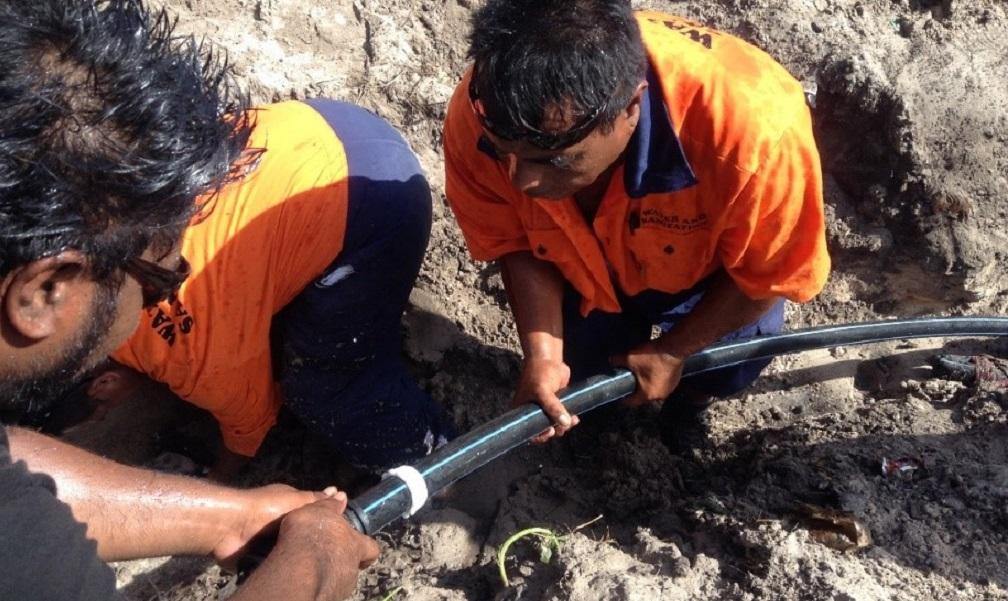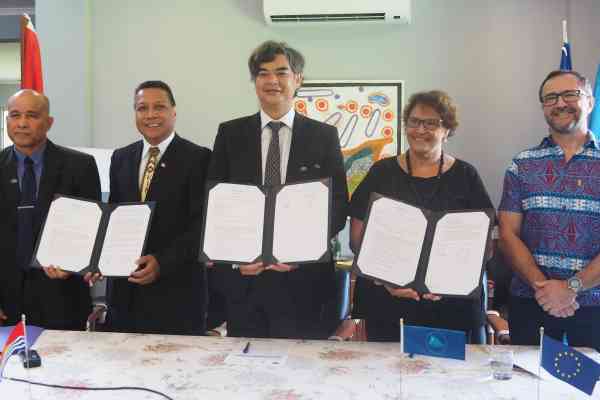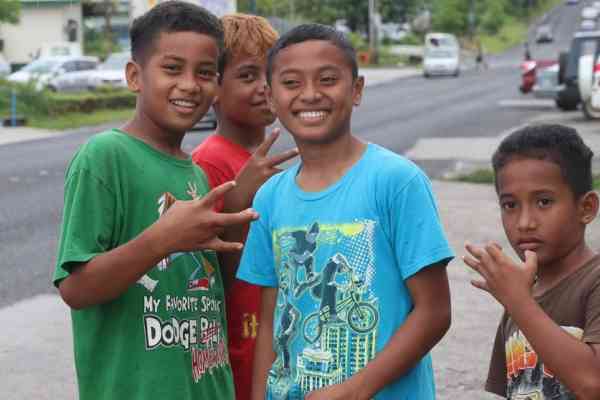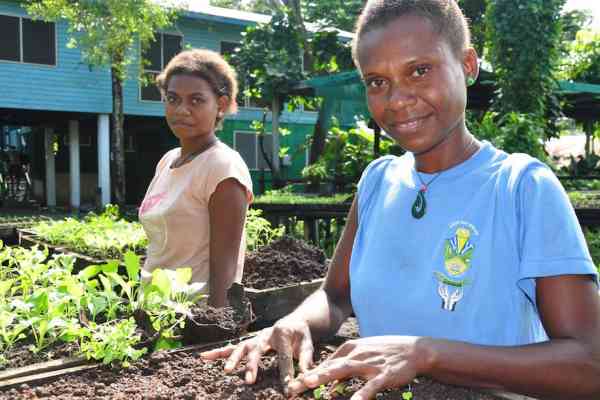(disponible en anglais uniquement)
Water for Life: Safe and sustainable drinking water for Kiritimati Island
The current global pandemic has been a stark reminder of the important role that safe and reliable drinking water plays in our lives. It is essential for human life and a critical prerequisite of healthy communities and economies, however countries across the Pacific face significant challenges in ensuring that this vital resource is accessible to all.
The latest country data assembled by UN agencies show that the Pacific has the lowest levels of access to basic water and sanitation services in the world and is the only region where the proportion of people with access to basic sanitation facilities has reduced since 2000. This challenge is further exacerbated by the disasters that regularly impact our region, including droughts and destructive events such as cyclones that can quickly wipe out drinking water facilities.
However, in the face of these challenges, communities across the Pacific are responding. One country particularly focused on improving access to water is the Republic of Kiribati. As a drought-prone nation consisting almost entirely of low-lying coral atolls, maintaining adequate drinking water supplies throughout all conditions can be a challenge, particularly in remote locations.
One such place is Kiritimati Island, located more than 3,000 km east of the capital Tarawa. Kiritimati Island has for years experienced the Pacific’s most variable rainfall, together with prolonged periods of drought that discouraged early human settlement. With no rivers or streams, freshwater on Kiritimati is largely limited to shallow pockets of groundwater-fed by rainfall percolating through the sandy soil.
Kiritimati Island is home to around 7,000 people, and for these communities, water security is a critical development issue. Responding to this need, the Government of Kiribati has been working in close partnership with the European Union and the Pacific Community (SPC) to increase scientific knowledge of the island’s groundwater and to build the infrastructure and human capacity required to more fully harness it to support local needs. The resulting water system was commissioned in 2019, and has boosted access to safe and reliable drinking water for approximately 70% of the island’s population.
Recognising the economic, health and social impacts of this work, the Government of Kiribati is now extending its successful partnership with the European Union and SPC through a new project that aims to extend access to safe and reliable drinking water to other communities across Kiritimati Island, while strengthening local capacity to manage and maintain the systems. The project agreement for this €6.2 million investment was announced today by the European Union and work will begin in the coming months.
Kiribati High Commissioner to Fiji, H.E. Mr. David Teaabo commended both SPC and the European Union for their commitment to this long-standing and critical partnership with the Government of Kiribati to increase water for communities of Kiritimati Island.
“It is a great achievement that our country is still COVID free, however we remain to be diligent in how we prepare and respond to COVID-19 should it ever reaches our shores.”
“Food security and access to clean, safe drinking water are both critical in responding to the impact and risk of COVID19 whilst also being instrumental development actions for our people into the future. The outcomes of this work will support some of our most remote communities and we commend both the EU and SPC for their partnership commitment to support the people of Kiribati, he said”.
This collaboration comes at a time when access to safe drinking water, sanitation and hygiene facilities are essential to support handwashing and protect human health during outbreaks of infectious diseases such as COVID-19.



